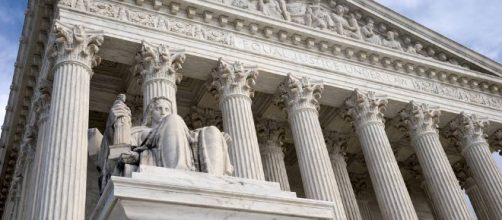The Founding Fathers of the American Constitution well knew that the future was uncertain and that their document as well as decisions by politicians would be subject to controversy or reviews in the future. For these reasons a system of checks and balances was set in place to endure that the core values of the United States would be protected.
Of walls and migration
The executive orders signed yesterday by President #Donald Trump on Immigration issues such as the Wall with Mexico, restrictions of Moslem immigration from certain Middle Eastern countries and the possibility of sanctions to the so-called “Sanctuary Cities” could well finish up in front of the Justices of the Supreme Court of the United States.
While the basis of the decisions such as fines for the cities and the financing of the Wall have dominated the headlines, there is another issue that will be of specific interest to human rights leaders and particularly to the Supreme Court.
The specific restrictions to Moslems from Iraq, Iran, Syria, Yemen, Sudan, Libya and Somalia raise issues of freedom of religion, as well as who may be considered refugees. While the executive orders give priority to persecuted minorities such as Christians and Yazidis from these countries, it also avoids facing a specific issue that is often forgotten in the debate about Moslem immigration. The fanatic groups such as ISIS do not only persecute non Moslems, their persecutions are even more savage against those Moslems such as the Shiites and the Sufis that do not conform to their very limited interpretation of the Koran.
Furthermore, with the reduction of refugee numbers the executive order will also highlight America’s change of direction to the world and cause problems for international agencies assisting refugees.
City rights
The threats of sanctions against cities like New York and San Francisco which are considered “Sanctuary cities” for migrants and which have regularly drawn the ire of the newly installed President, as well as the direct call for Chicago to address crime issues or face the possibility of direct federal intervention are directly linked.
The issues are part of the long term national controversies of “States’ Rights” and will undoubtedly give the Supreme Court more items to consider in the future.
In any case, yesterday’s executive orders have the real potential of redefining America’s traditional role as a place of shelter for refugees and migrants. We must now ask ourselves if Donald Trump wants to cancel the profound meaning of Emma Lazarus’ phrase immortalized under the Statue of Liberty “Give me your tired, your poor, your huddled masses yearning to breathe free”. It will be up to the Supreme Court to make the final decisions on these fundamental issues.

